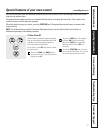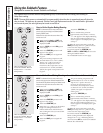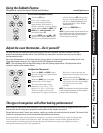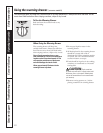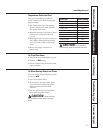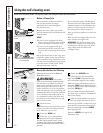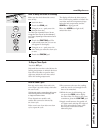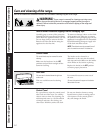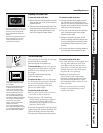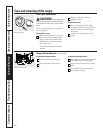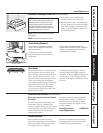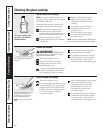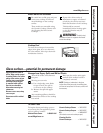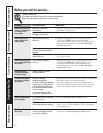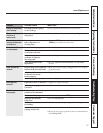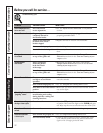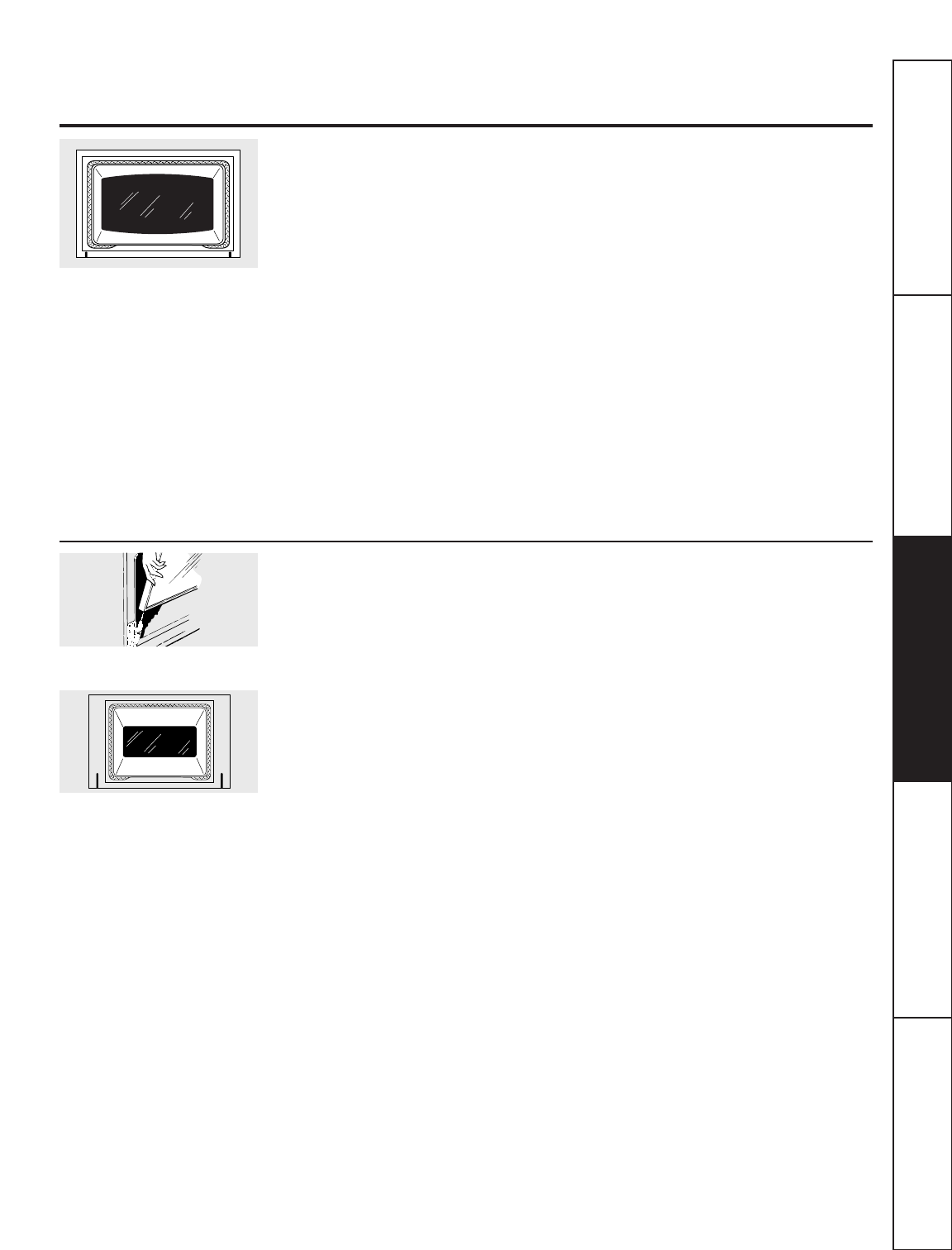
25
www.GEAppliances.ca
The gasket is designed with a gap at the
bottom to allow for proper air circulation.
Do not rub or clean the door gasket—
it has an extremely low resistance to
abrasion.
If you notice the gasket becoming worn,
frayed or damaged in any way or if it
has become displaced on the door,
you should have it replaced.
Cleaning the Oven Door
To clean the inside of the door:
■
Because the area inside the gasket is cleaned
during the self-clean cycle, you do not need to
clean this by hand.
■
The area outside the gasket and the door liner
can be cleaned with a soap-filled steel wool or
plastic pad, hot water and detergent. Rinse
well with a vinegar and water solution.
To clean the outside of the door:
■
Use soap and water to thoroughly clean the
top, sides and front of the oven door. Rinse
well. You may also use a glass cleaner to clean
the glass on the outside of the door. Do not let
water drip into the vent openings.
■
If any stain on the door vent trim is persistent,
use a soft abrasive cleaner and a sponge-
scrubber for best results.
■
Spillage of marinades, fruit juices, tomato
sauces and basting materials containing acids
may cause discoloration and should be wiped
up immediately. When surface is cool, clean
and rinse.
■
Do not use oven cleaners, cleaning powders or
harsh abrasives on the outside of the door.
Safety Instructions
Operating Instructions
Care and Cleaning
Troubleshooting Tips Consumer Support
The oven door is removable for cleaning.
Do not lift the door by the handle.
Make sure the oven is completely cool
.
To remove the door,
open it to the special
stop position. Grasp firmly on each side
and lift the door straight up and off
the hinges.
Do not place hands between the hinge
and the oven door frame.
To replace the door
, make sure the hinges
are in the special stop position. Position
the slots in the bottom of the door
squarely over the hinges and slowly
lower it over both hinges.
To clean the inside of the door:
■Do not allow excess water to run into
any holes or slots in the door.
■Soap and water will normally do
the job. Heavy spattering or spillovers
may require cleaning with a mild
abrasive cleaner. Soap-filled, steel-wool
pads may also be used.
Do not allow food spills with a high sugar or acid
content (such as milk, tomatoes, sauerkraut, fruit
juices or pie filling) to remain on the surface.
They may cause a dull spot even after cleaning.
To clean the outside of the door:
■Use soap and water to thoroughly clean
the top, sides and front of the oven
door. Rinse well. You may also use a
glass cleaner to clean the glass on the
outside of the door. Do not let water
drip into the vent openings.
■Spillage of marinades, fruit
juices, tomato sauces and basting
materials containing acids may cause
discoloration and should be wiped
up immediately. When surface is cool,
clean and rinse.
■Do not use oven cleaners, cleaning
powders or harsh abrasives on the
outside of the door.
Lift the door straight up and off
the hinges.
The gasket is designed with a gap
at the bottom to allow for proper
air circulation.
Because the area inside the gasket
is cleaned during the self-clean
cycle, you do not need to clean
this by hand on self-clean models.
The area outside the gasket and
the front frame can be cleaned
with a soap-filled steel-wool pad,
hot water and detergent. Rinse well
with a vinegar and water solution.
Do not rub or clean the door
gasket—it has an extremely low
resistance to abrasion.
If you notice the gasket becoming
worn, frayed or damaged in any way,
or if it has become displaced on the
door, you should have it replaced.
Lift-Off Oven Door



